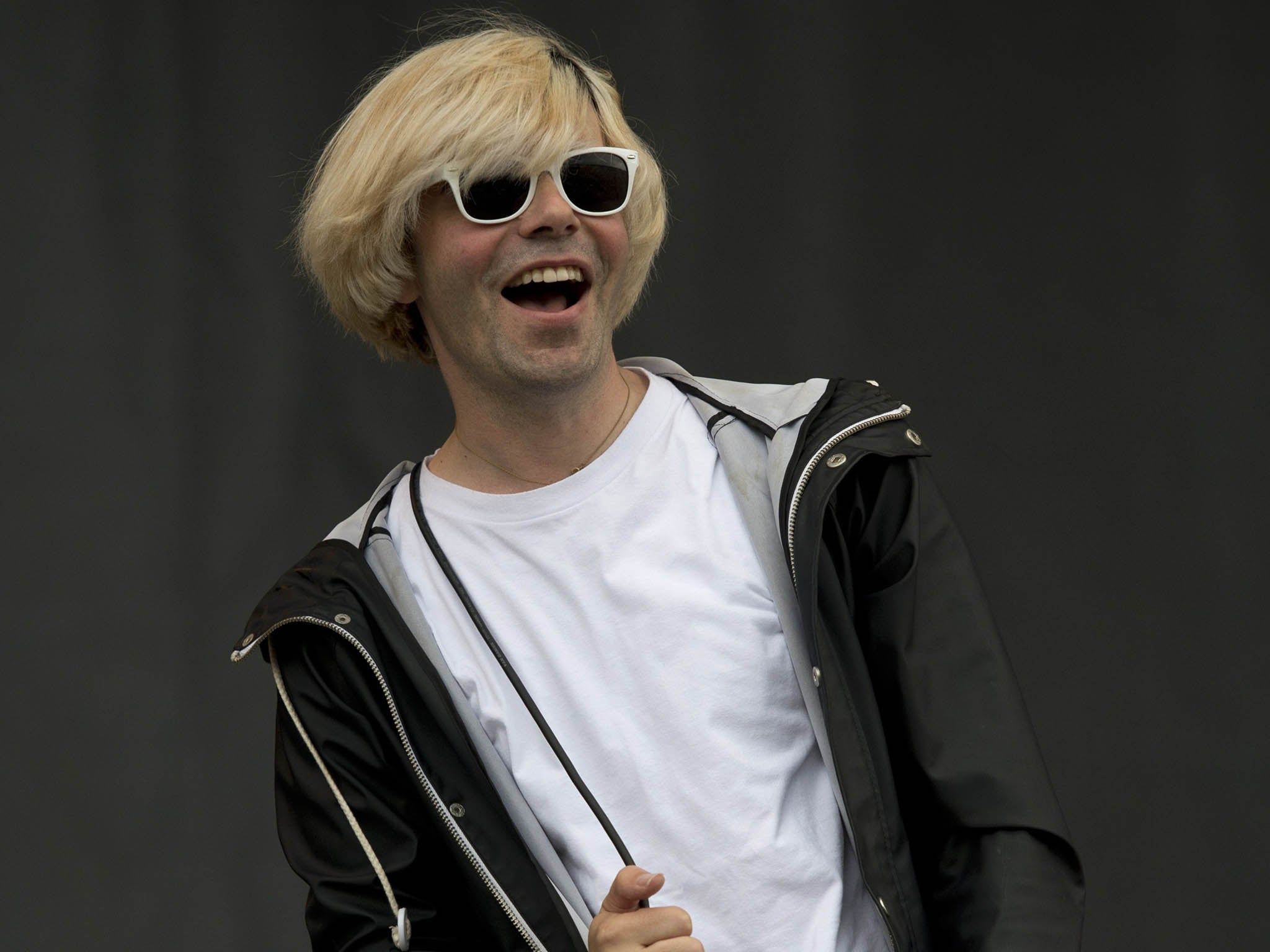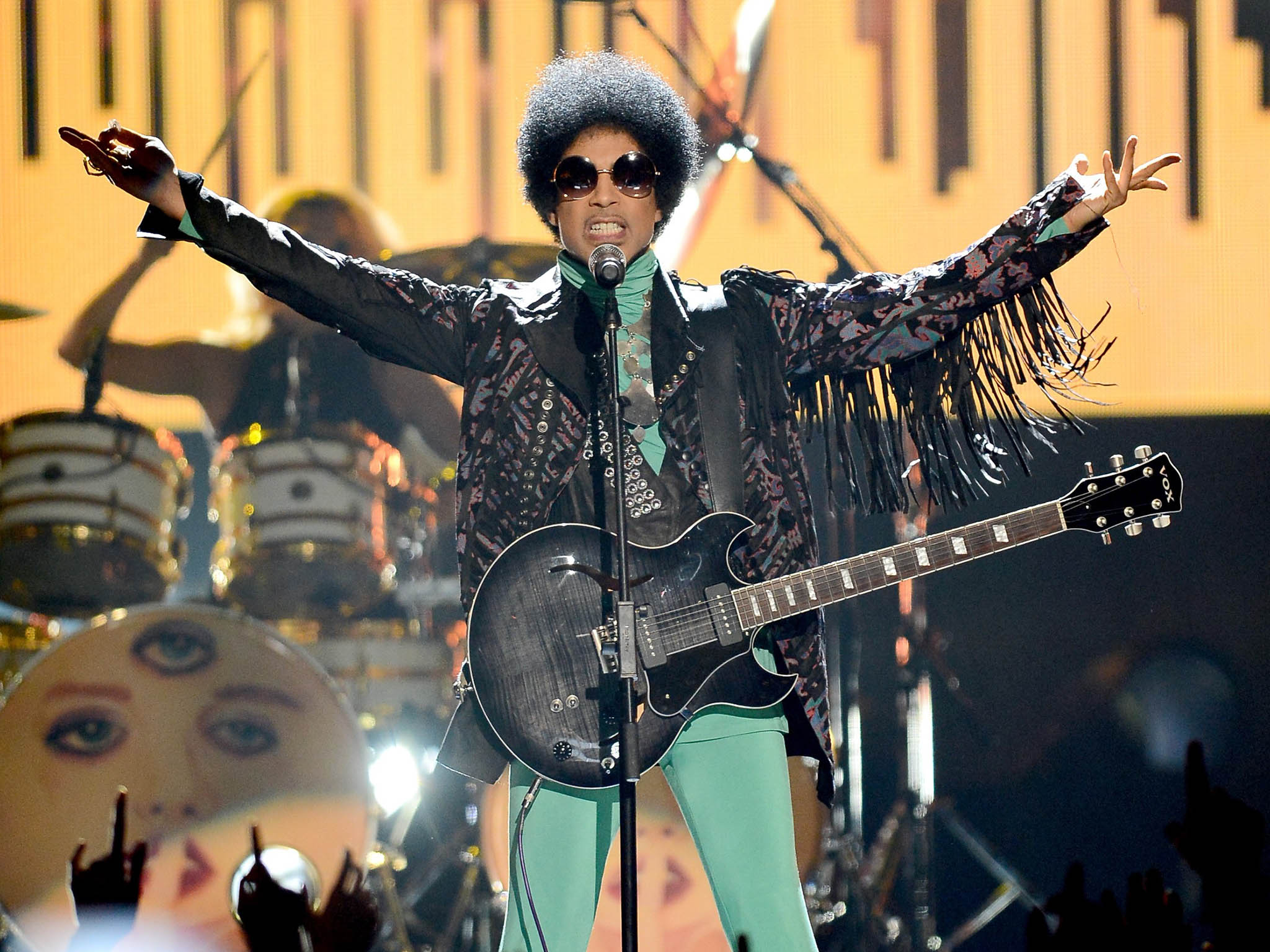The Independent's journalism is supported by our readers. When you purchase through links on our site, we may earn commission.
The Charlatans and Biffy Clyro's fustration on re-selling over priced tickets
Gig-goers are increasingly the victims of ticket touts. But the music industry is fighting back

For gig-goers, it has become an all-too-familiar scenario. You log on just before 9am on Friday morning to buy tickets for your favourite band’s latest tour only for the event to sell out and the tickets appear on resale websites at hugely inflated prices before you’ve even had chance to reach for your debit card.
So when Prince initially postponed his A Piano and a Microphone tour minutes before tickets were due on sale, tweeting a picture of a vulture with the pointed message “Multiple choice: A. Scavenger B. Vulture C. Tout D. All of the above”, the purple one tapped in to a growing exasperation among music-industry figures and fans alike at the behaviour of the secondary-ticketing market.
Prince’s actions were a response to the recent Which? market report on the practices of the industry’s principal sites Seatwave, Get Me In!, StubHub!, and Viagogo. Among a catalogue of criticisms, Which? noted the sites were advertising tickets before they were even officially on sale, were not properly adhering to recent changes to the Consumer Rights Act regarding the passing on of key information (face-value cost, seat numbers, restrictions), and that some tickets were being sold for as much as a 1,760 per cent mark-up.

Football matches aside, however, the reselling of tickets is not illegal, and in a statement StubHub! said it was “committed to transparency and as a true marketplace we do not own, purchase or price tickets”.
The question over what Biffy Clyro manager Paul Craig calls “touting on steroids” is a moral one, and Prince isn’t the only artist frustrated at the growth of the secondary market, now worth an estimated £1bn a year. Craig says Biffy Clyro are “totally opposed to touting”, while The Charlatans’ singer Tim Burgess is similarly frustrated at the “botnets”, the online systems used by touts to hoover up swathes of tickets immediately as they go on sale.
“It’s not something The Charlatans are into,” Burgess says. “The touts that are the issue these days don’t even leave the house – they have sophisticated software that means they scoop up countless tickets as they are 10 steps ahead of genuine fans in terms of technology. Secondary-ticketing sites seem to have legitimised this.”
Michael Spearman, drummer with Everything Everything, shares that annoyance: “Big websites making lots of money from other people doing work and doing no work themselves is pretty disgusting. Genuine fans are getting priced out, we feel ripped off and those sites are the only winners.”
Which? found that 29 per cent of people using secondary-ticketing sites didn’t realise the difference between primary and secondary channels, despite the latter’s high prices and significant booking fees. According to Dave Newton, the Ride manager and co-founder of ticket seller WeGotTickets, that ambiguity has been fostered deliberately. “Control has gone out of the system, there’s been a gold rush by people trying to formalise the secondary market. The lines have been successfully blurred. Many go to the secondary market first, which is crazy. The concept of face value, booking fee and price have become an unknown factor in the transaction.”
Having taken submissions from the general public, a Government review of the secondary market is currently under way, with many hoping legislation will follow. “This is an industry that is crying out for regulation,” says Richard Marks, director of fan-to-fan ticket exchange site Scarlet Mist. “The Government needs to get involved, say it’s wrong, put legislation in to monitor it and create a better playing field.”
Enjoy unlimited access to 100 million ad-free songs and podcasts with Amazon Music
Sign up now for a 30-day free trial. Terms apply.
ADVERTISEMENT. If you sign up to this service we will earn commission. This revenue helps to fund journalism across The Independent.
Enjoy unlimited access to 100 million ad-free songs and podcasts with Amazon Music
Sign up now for a 30-day free trial. Terms apply.
ADVERTISEMENT. If you sign up to this service we will earn commission. This revenue helps to fund journalism across The Independent.

With Government minister Tracey Crouch on record as saying “prices should be set by supply and demand in the secondary-ticketing market”, the Government’s appetite to interfere remains in question. Yet, with Newton recognising that “legislation alone won’t solve the situation”, many in the music industry are already taking steps to combat the secondary market’s impact.
“A lot of bands, managers and promoters I speak to think the same as we do,” says Craig, “and we do whatever we can to minimise it. Paper-less tickets are becoming more common, and we put limits per tickets you can buy, insist on name ID, do pre-sales to Team Biffy and offer unique codes for each buyer.” “We stay vigilant,” Spearman says. “We keep an eye on it – we saw tickets for one show going for £100 and we tracked down who was selling them.”
Innovators such as mobile-only ticketing app Dice are pioneering a way forward. Tickets bought through Dice are registered to the device used for purchase and, thanks to their specially designed software, are 100 per cent tout-proof. “Being anti-tout is hugely important to us,” says Dice music editor Jen Long. “It’s a massive part of the ethos of Dice. We started because of frustrations with traditional ticketing. Because it’s linked to your phone, we are completely immune to the software bots that hit the big ticketing companies.”
Dice also has a waiting-list system for sold events, making refunds convenient. “We know things come up and people genuinely can’t go, so we’re making it easier to pass on those tickets.”
For fans looking for face-value tickets for sold-out shows, hope comes with Scarlet Mist and Twickets, sites where tickets are sold fan-to-fan and never over cost-price. Twickets has seen its registered users grow to 350,000 in three years, and is now the official ticket resale service of Mumford and Sons, Suede and the Kendal Calling festival.
“We are not naive enough to say we’re going to stop touting,” says Twickets founder Richard Davies. “But we are an alternative service to trade at face value for genuine people that can’t make the event. I think people are starting to realise you don’t have to use the secondary market.”
Social media provides another avenue. “Twitter seems to be a good place to head,” Burgess says. “Lots of bands try to help out and would ensure that the tickets are at face value.”
Davies adds: “Up to 10 per cent of people don’t end up going to events. They change plans, or can’t make it, so there’s lot of spares on Twitter and Facebook event pages if you hunt around.”
The advice seems to be don’t resort to the secondary market, no matter how tempting. “Don’t spend that amount of money,” Long says. “It’s depressing for you and the band.”
Burgess agrees. “The only way the secondary-ticketing sites survive is because people use them. Don’t feed the greed.”
Join our commenting forum
Join thought-provoking conversations, follow other Independent readers and see their replies
Comments
Bookmark popover
Removed from bookmarks